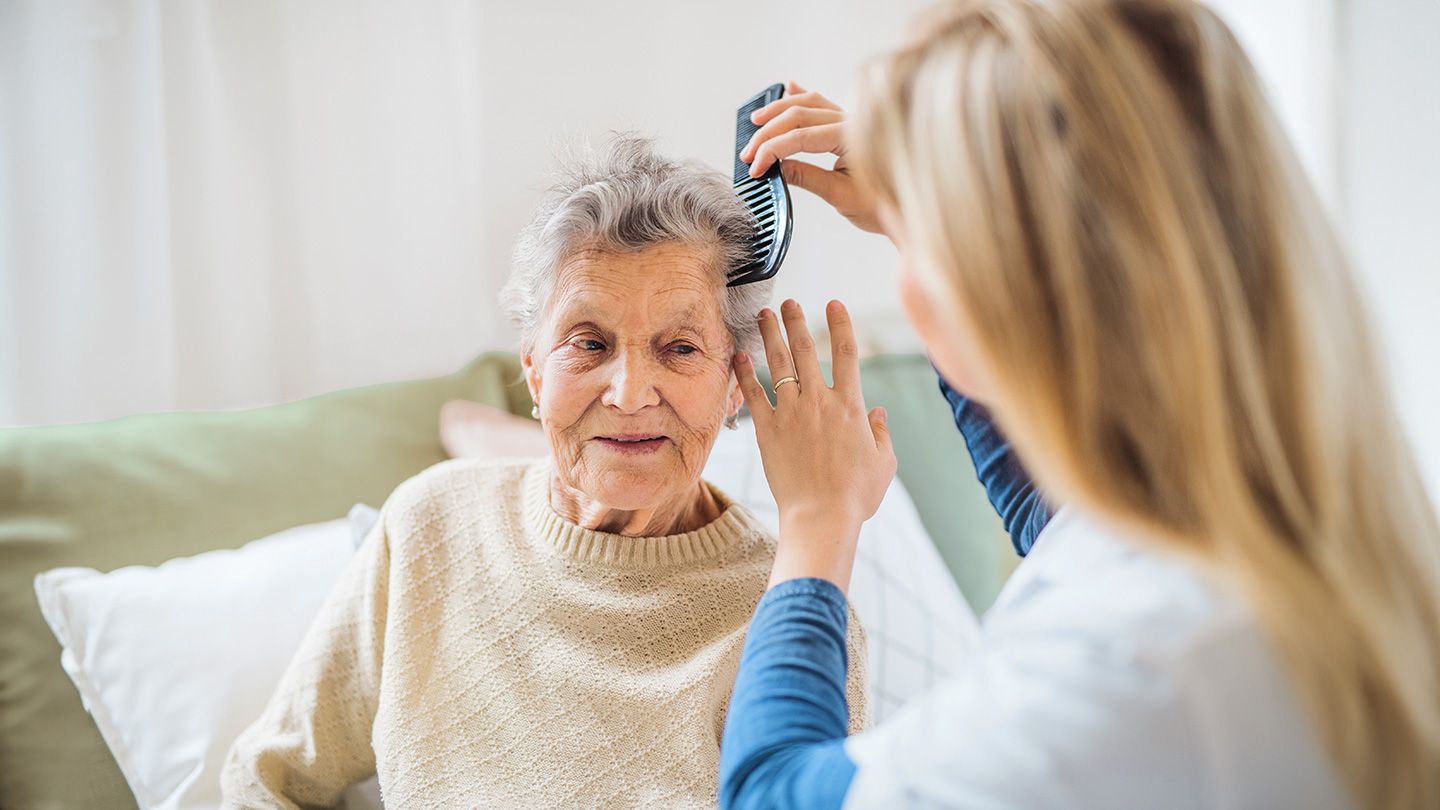Keeping Your Brain Sharp as You Age
As we get older, it's normal to experience some decline in brain function. Memory might not be as sharp as it once was, learning new things can take a bit more effort, and we might find ourselves misplacing items more often. But significant memory loss and dementia are not inevitable parts of aging.
The brain has an amazing capacity to adapt and change throughout our lives, a property known as neuroplasticity. By living an active, intellectually engaged lifestyle and making smart diet and lifestyle choices, we can maximize neuroplasticity and keep our brains healthy well into old age.
How Aging Affects the Brain
Aging does impact brain structure and function. Brain volume gradually decreases, connections between neurons aren't as efficient, neurotransmitter activity changes, inflammation increases, and small blockages in blood vessels may affect blood flow.
These changes accumulate over decades and affect parts of the brain involved in memory, learning, and executive functions like planning and attention. Thats why cognitive abilities that rely on these areaslike recalling names and detailsare most prone to age-related decline.
8 Tips to Keep Your Aging Brain Sharp
The good news is much can be done to promote brain health and resilience. Here are 8 research-backed ways to keep your brain sharp as you age:
1. Exercise for cardiovascular and brain health
Exercise has comprehensive benefits for both body and mind. It reduces inflammation, stimulates release of neuron-nurturing growth factors, strengthens brain cell connections, and leads to growth of new brain cells even into old age.
Aim for 30-60 minutes per day of moderate intensity exercise like brisk walking, swimming, or cycling. This will keep your heart healthy and optimize blood flow to the brain.
2. Eat a brain-nourishing diet
A nutritional powerhouse brain diet emphasizes vegetables, fruits, whole grains, fish, nuts and seeds, beans and legumes, olive oil, and moderate wine intake. It limits red meat, cheese, sweets and fried foods.
This type of diet delivers antioxidants, vitamins, minerals, and healthy fats to fight inflammation, benefit brain cell structure, sharpen cognitive skills, and lower dementia risk by up to 53%, according to research.
3. Stay socially and mentally active
Stable relationships and intellectual stimulation build cognitive reserve to compensate for age-related brain changes. Stay engaged through social interaction with friends, family and community groups. Learn new skills, play games, read books, do crosswords and puzzles.
Studies correlate frequent social and mental activity with later onset of memory decline by 1-2 years and a 20-50% reduction in risk of Alzheimers disease.
4. Get enough sleep
Poor sleep becomes more common with aging but prevents the brain from adequately clearing toxins and consolidating memories. Adults should get 7-9 hours per night.
Establish relaxing pre-bedtime rituals, avoid electronics before bed, eliminate caffeine after noon, and create a cool, comfortable sleep environment to support consistent, high-quality sleep.
5. Manage stress
Chronic stress and anxiety accelerate brain aging. Stress-reduction practices like mindfulness meditation, yoga, deep breathing and spending time outdoors balance stress hormone levels to aid memory, focus and emotional regulation.
10-15 minutes per day is enough to start experiencing benefits. Apps like Headspace and Calm provide guided introductions to mindfulness.
6. Stay mentally flexible
Rigid thinking becomes more common as we age. But the ability to update assumptions and change ones perspective in response to new informationcognitive flexibilitycan improve with training.
Playing brain training computer games for an hour per week may enhance cognitive flexibility along with attention, memory and problem solving abilities.
7. Protect your head
Traumatic brain injury significantly raises later dementia risk even years afterwards. Always wear seatbelts and helmets for activities like bicycling, motorcycling or skiing to help prevent falls and head trauma.
There is also evidence that cumulative sub-concussive blows to the headlike those common in contact sportsmay be implicated in certain neurological diseases involving memory loss.
8. Know your health numbers
Manage key health metrics within recommended ranges to prevent subtle, systemic damage. This means maintaining normal blood pressure around 120/80, HbA1c blood sugar levels below 5.7%, and LDL cholesterol under 130 mg/dL.
Work with your doctor to control high blood pressure, diabetes, high cholesterol and other conditions that impact circulation and can lead to mini-strokes or small blockages affecting brain function.
The Total Brain Boost Supplement
In addition to lifestyle measures, certain natural supplements show promise for supporting brain health as we age.
Total Brain Boost is one formula packed with vitamins, amino acids, and herbal extracts to nourish, strengthen and regenerate aging brain cells for improved mental clarity, memory retrieval speed, focus and concentration.
Total Brain Boost Key Ingredients
Lets take a closer look at a few key Total Brain Boost ingredients and why they are included:
Bacopa Monnieri
This traditional Ayurvedic herb enhances signaling of neurons in parts of the brain involved with memory and higher cognition. Human trials show it may improve memory and learning capacity along with attention and information processing.
Lions Mane Mushroom
Known for its nootropic benefits, lions mane contains nerve growth factor to stimulate growth of neurons and myelin sheaths protecting them. Research reveals improved cognitive performance and protection against dementia.
CDP Choline
As a precursor compound to the key neurotransmitter acetylcholine, CDP choline is critical for memory, focus and learning abilities. Supplementation helps replenish declining choline levels in aging brains.
L-Theanine
This amino acid boosts alpha brain waves for increased relaxation and mental clarity without drowsiness. Pairs nicely with caffeine to take the jittery edge off while improving attention and alertness.
Ginkgo Biloba
Ginkgo biloba assists blood flow delivery of oxygen and nutrients to the brain. As an antioxidant and anti-inflammatory, it protects neurons against damage linked to neurodegenerative disease risk and age-related cognitive decline.
Additional Vitamins & Minerals
Total Brain Boost rounds out its formula with essential vitamins (B complex, C, D and E) and minerals like magnesium and zinc important for proper neuron metabolism, protective myelin sheaths around axons, neurotransmitter synthesis and DNA repair.
How to Use Total Brain Boost
As a daily dietary supplement, take 2 capsules first thing in the morning or as directed by your healthcare provider. Evaluate effects over 4-6 week period.
Note that while individual ingredients are generally well tolerated, check with doctor before trying if on other medications or with underlying health conditions.
The Bottom Line on Keeping Your Brain Young
Aging brings natural changes to brain structure and function. But significant memory loss and dementia are not inevitable. Nurturing whole body health and engagement in positive lifestyle habits pays off in the form of better brain resilience.
Supplement smartly with brain-boosting nutrients like those formulated in Total Brain Boost for additional assistance. Along with healthy lifestyle measures, proactively supporting brain health promotes functioning that can remain sharp well into later life.
FAQs
What causes memory loss with aging?
Normal aging involves structural and functional changes in the brain that negatively impact memory and cognition. These include brain shrinkage, less efficient signal transmission between neurons, drops in neurotransmitter activity, decreased blood flow and inflammation.
How can you strengthen an aging brain?
You can strengthen your brain through cognitive training, learning new things, staying socially engaged, exercising, limiting stress, eating a "brain-healthy diet" high in antioxidants, and getting enough sleep and key nutrients to support brain cell health.
Can brain supplements really make a difference?
Yes, certain brain-boosting supplements like Total Brain Support can optimize brain cell metabolism for better neurotransmitter balance, neuronal communication, blood flow and connectivity. Key ingredients nourish aging neurons to improve focus, memory, processing speed and cognitive resilience.
What lifestyle habits contribute most to dementia risk?
Lack of exercise, social isolation, chronic stress, poor sleep, smoking, and a highly-processed high sugar diet lacking nutrients all significantly contribute to dementia development. Optimizing these areas protects the aging brain and reduces Alzheimer's risk by up to 60%.
Disclaimer: This article is for informational purposes only and does not constitute medical advice. Always consult with a healthcare professional before starting any new treatment regimen.
Related Coverage
Embrace the power of superfoods and elevate your conscious lifestyle. Discover 15 nutrient-dense powerhouses that offer a wealth of benefits for your body, mind, and spirit....
Medicare cremation coverage isn’t provided, but VA burial aid and prepaid funeral plans can help offset cremation costs....
Not everyone qualifies for Medicare at 65. Find out if you’re eligible and what steps to take for coverage....
Get clear answers on Medicare open-heart surgery coverage, what it includes, and how to minimize your out-of-pocket expenses....
Find out if Medicare covers Uber rides for medical appointments and discover alternatives to make transportation easier and more affordable....
Hospice care falls short in areas of psychological support, communication, caregiver assistance, and symptom management. Learn what hospice doesn't discuss....
Navigate Medicare in Idaho with confidence. Compare plans, avoid mistakes, and choose smart coverage that fits your health and budget....
Compare Louisiana Medicare plans 2025. Get help choosing the right coverage for your health needs and budget in Louisiana....
Find the best Medicare in New Mexico options for 2025. Compare plans, enroll with confidence, and get the coverage you need....
As bladder cancer progresses, pain, urinary problems, fatigue, and other issues arise. Expect pain, appetite loss, infections, kidney failure, and breathing changes near death....









